We are delighted to announce our 2022 Prime Minister’s Summer Reading List.
The annual list is a collection of six books that Grattan staff recommend for the Prime Minister – or indeed any Australian – to read over the summer break.
This year’s list is:
- Career & Family: Women’s Century-Long Journey toward Equity – Claudia Goldin
- We Come With This Place – Debra Dank
- My Father and Other Animals – Sam Vincent
- Buried Treasure – Jo Chandler (in the Griffith Review)
- Healing: Our path from mental illness to mental health – Thomas Insel
- Cold Enough for Snow – Jessica Au
It’s been another testing year for Australia, but it’s been a wonderful year for Australian books.
Our 2022 list is a challenging, exhilarating collection: relevant to our turbulent times, and saying something interesting and new about Australia, the world, and ourselves.
But most of all, these books are cracking good reads.
We will be packaging them up and sending them off to The Lodge, with a note to the Prime Minister suggesting that he keep them on his bedside table or take them down to the beach.
It was a rigorous selection process: the Grattan staff book club considered an expansive array of Australian and international novels, non-fiction books, essays, papers, and reports.
The 2022 Prime Minister’s Summer Reading List will be officially launched at a special event at State Library Victoria from 5.30-7pm on Thursday 8 December, featuring Danielle Wood in conversation with renowned journalist and committed reader Eleanor Hall, as well as four of the six winning authors. You can register for the event here.
Here’s what we say about our six books of the year.
Career & Family: Women’s Century-Long Journey toward Equity
Claudia Goldin (Princeton University Press)
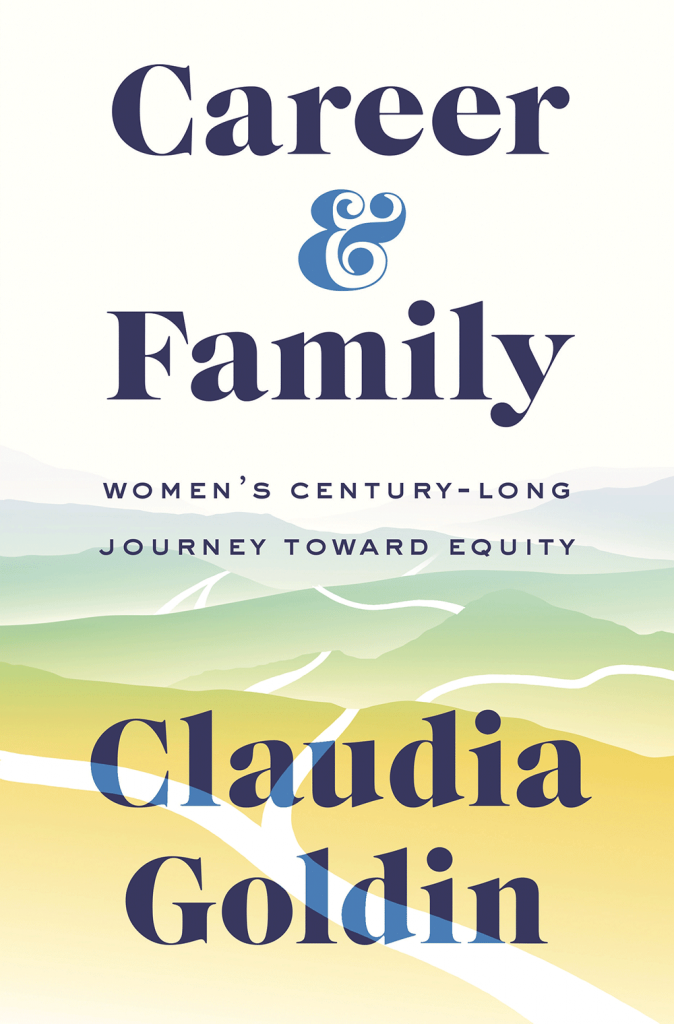
Claudia Goldin pioneered the study of gender economics and brought it into the mainstream. Career & Family brings together decades of her research to trace how a century of college-educated women have tackled one of life’s biggest challenges, and the barriers that remain.
Her meticulous work follows five cohorts of women and outlines the very different challenges they faced in trying to balance work and family life.
Goldin concludes that the primary barrier to gender equality today is not deliberate discrimination, but ‘greedy jobs’ – jobs that eat up your time.
Many professions reward people who work very long and inflexible hours, including late nights and weekends. It’s hard to do that while also doing the school pick-ups and spending time with your family. Women’s peak fertility ages also coincide with crunch times in professional careers, such as making partner at a law or consulting firm, or completing medical residency.
The higher incomes offered in these ‘greedy’ jobs push couples to specialise, because having one person fully dedicated to their career and one at home yields a higher household income than if the couple shared work and care more equally. You can guess which member of the couple usually gets to stay home.
Woven into her research are biographical narratives of women that illustrate the leaps that path-breaking women have made, building on the efforts of previous generations to claim opportunities for themselves.
Career & Family is essential reading for anyone wanting to understand the barriers to gender equality – and how we got here.
We Come With This Place
Debra Dank (Echo Publishing)
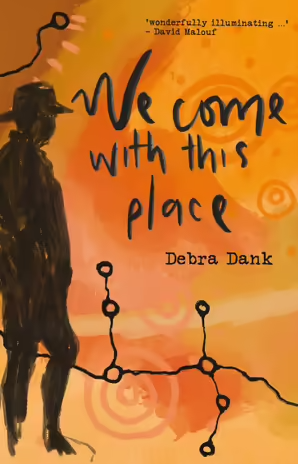
In We Come With This Place, Debra Dank guides her reader gently across Gudanji country. Over the red dirt, onto riverbanks dotted with crocodile eggs, past a hidden spring of fresh water in the desert. This is her place. She asks us to listen to the land: ‘Nyamirniji ilinga jaburru … you listen first and then you will know.’
The land whispers stories of connection and love, stretching back deep into time. At the start of the book, a young Debra sits around a campfire. Beside her sit her Mum, Dad, and two sisters. Her ancestors are there too, sending their stories through the ‘winds playing in the grasses and the clouds making signs’.
Within this book, time refuses to sit linearly. Stories are given weight by the expansive land which holds them, not the year they happened. Gudanji women dance with their ‘long past grannies’– just as they imagine their future granddaughters dancing with them.
But to listen is also to hear what you wish you hadn’t. Many pages of this book are heavy with terror. Can you hear it? Dank asks us. ‘Can you hear the wail in the wind and see the blood running in the dust?’
She describes her father’s escape from Gudanji land in the dead of night, pursued by the settlers who raped his mother. His sense of dislocation grows the further he is forced from home. Pain too, we see, is not a static event of the past. It ‘sits in this country and is waiting’.
As Australia contemplates a Voice to Parliament, this book reminds us to listen. Listen when the land tells her story. Hear the voices of the traditional owners.
Listen first and then you will know.
My Father and Other Animals
Sam Vincent (Black Inc.)
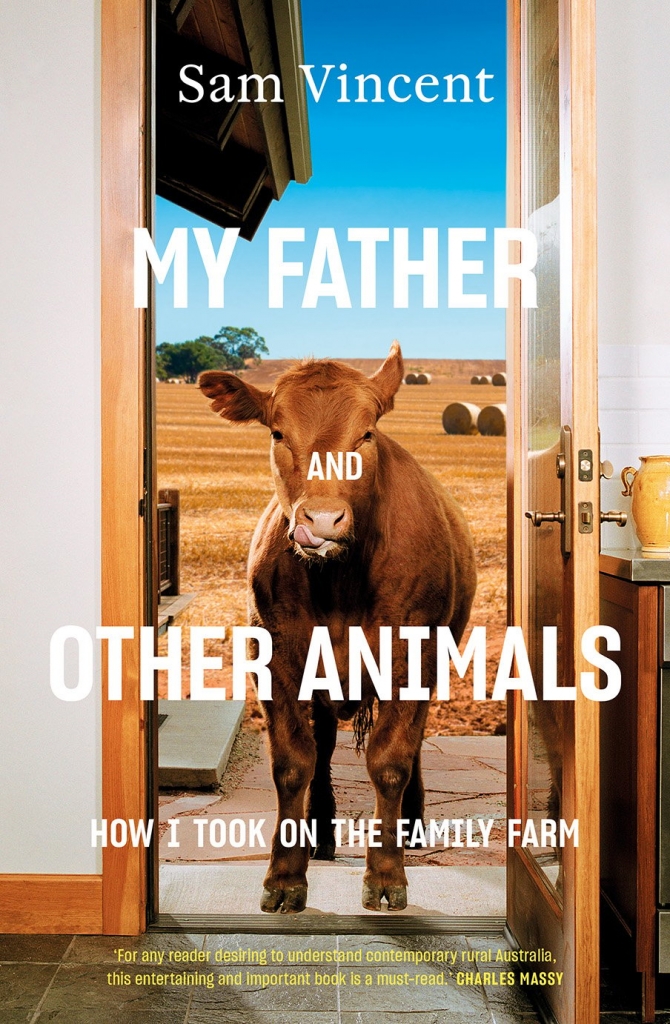
It’s common to hear of children leaving the family farm for opportunities in the city. As Sam Vincent writes, ‘the drain from the country to city has become a torrent, leaving in its wake broken communities and farm gates locked for good’.
But My Father and Other Animals is just the opposite: a book about how a Millennial, city-dwelling writer is drawn home to become his father’s farmhand.
Right from the outset, Sam paints a funny and familiar picture of the generational differences between father and son. The handy-man father who can’t be slowed even by doctors’ orders, and the son who can hardly be described as anything resembling ‘handy’. The father who bought a hobby farm in his 20s, and the son who, at 29, is ‘casually employed in a dead-end office job and struggling to sell the odd piece of freelance journalism’.
This dichotomy is the backdrop of Sam’s journey from city-dwelling writer to honest cattle farmer. My Father and Other Animals is the entertaining account of how, under the tutorage of his father, Sam learns his way on the farm: from knocking in fence posts by hand and castrating calves, to learning how land can be shaped over the years to preserve water.
Sam Vincent writes with honesty, humility, and a good dose of humour. He brings to life the everyday victories of farming – as well as the tragedy of drought. And at the same time, My Father and Other Animals also tells a broader story: about regeneration, sustainability, and legacy. It’s a story of how a son learns about his own family, just as much as how he learns to become a farmer.
Buried Treasure
Jo Chandler (Griffith Review 77)
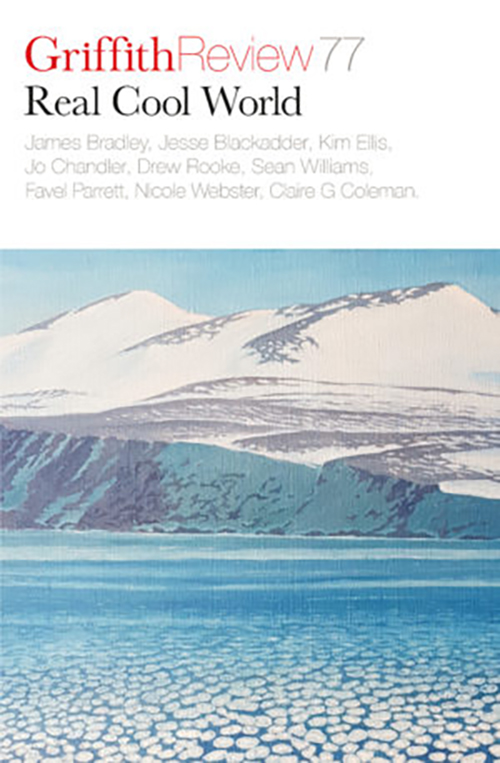
Buried treasure invites you on a journey to the world’s coldest, driest, and most remote continent: Antarctica. A wild place where Australia is a world leader, and where science is the currency of influence.
Reporter Jo Chandler ventures to the Land of Ice and Penguins to tell the story of Australia’s million-year ice core project. This is ‘Australia’s full-throttle return to deep-field Antarctic science… its most ambitious and costly over-snow expedition in a generation’.
Bubbles buried deep in the ice contain precious information about what the Earth’s atmosphere used to be like. The mission to dig far enough back in time to understand the critical tipping point in the cycle of ice ages is akin to the modern space race. Australia, China, Europe, and Japan are digging, and Russia and South Korea are in the race too. There is, in Chandler’s memorable phrase, ‘A million years to go, and no time to lose’. Because we all urgently need to know ‘how far we can push the climate system before it tips into another state’.
But Chandler digs beyond the science into Antarctic diplomacy and Australia’s leadership in preserving the Antarctic continent for science, peace, and collaboration. Australia’s efforts have waxed and waned over the years, but we have maintained a long presence on the ice. Our proximity, history, and experience remain critical as nations posture for influence, as well as in the very real day-to-day challenges of survival in this harsh place.
Part adventure story, part science reportage, Buried treasure is a beautiful and hopeful essay about building a collaborative understanding of the rhythms of our planet.
Healing: Our path from mental illness to mental health
Thomas Insel (Penguin Press)
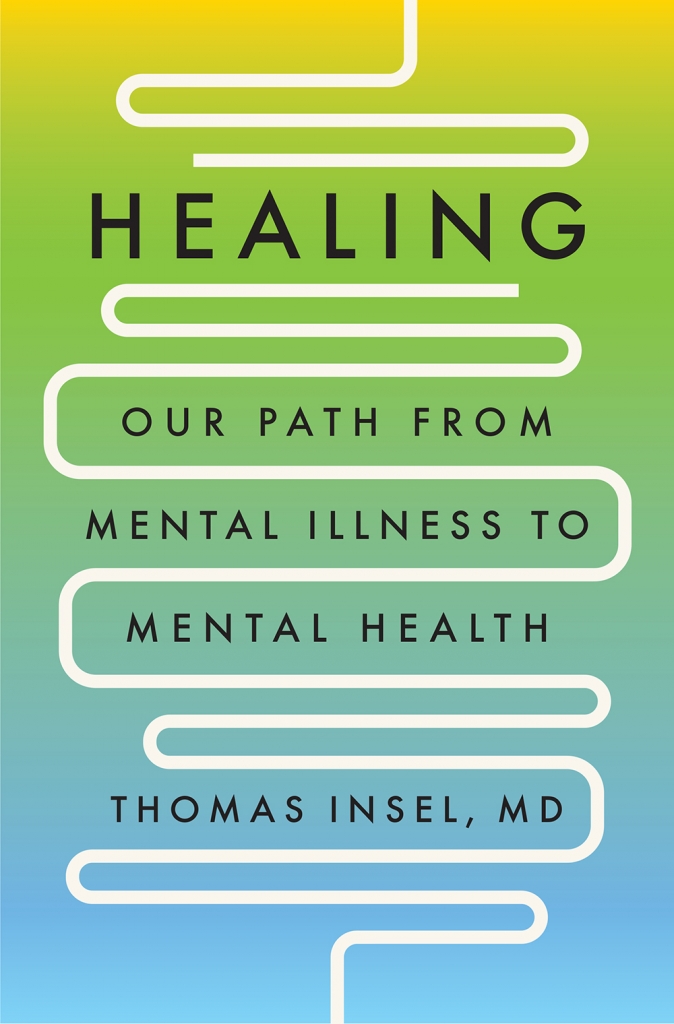
In 2005, Dr Thomas Insel – Director of the US National Institute of Mental Health – was giving a research presentation when the father of a boy with schizophrenia stood up and yelled: ‘Our house is on fire and you are talking about the chemistry of the paint. What are you doing to put out this fire?’
Insel knew that the father was right. Stunning scientific advances had not done enough for people living with – and dying from – mental illness. He resolved to embark on his own ‘odyssey’, to investigate all that is broken about the American mental healthcare system and to chart a better path towards healing.
Insel is well qualified to tell this story: he’s spent four decades in the field as a psychiatrist and neuroscientist, and he brings the empathy of a father who’s seen first-hand this crisis of care.
Although Healing is written from a US perspective, many of the same issues reverberate through the Australian mental healthcare system. While we have treatments that work, care is often unaffordable or unavailable, particularly for those who can least afford it. Quality of care varies widely, and treatment often focuses on symptoms rather than recovery.
Insel confesses that he and other scientists have only been working on part of the problem. For too long they’ve thought of serious mental illness as a medical problem, but in fact it ‘requires a social solution’.
Insel sets out what’s needed. Critical to recovery are the ‘3 Ps’ – people, place, and purpose. To heal, individuals need connection to others, a safe place to call home, and meaning in their lives. This roadmap needs to draw on the best available treatments but will not just run through clinics and hospitals.
Born of a lifetime of expertise and a quest for answers, Healing offers a hopeful vision of how we can remake our mental healthcare system.
Cold Enough for Snow
Jessica Au (Giramondo Publishing)
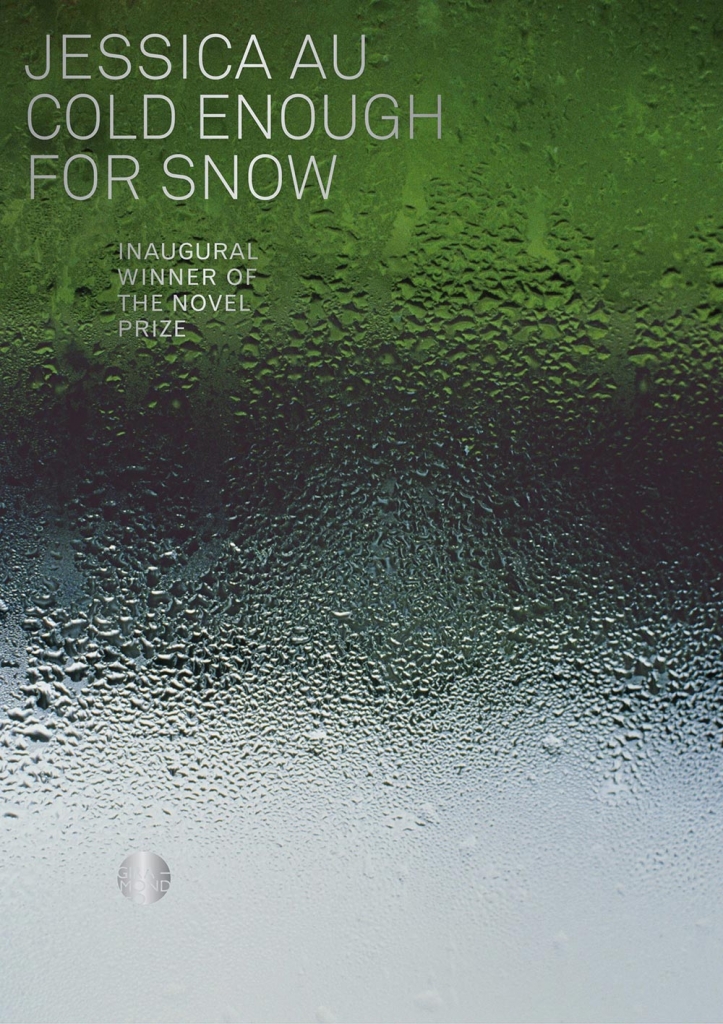
One of the most profound and difficult parts of ageing is the reversal of roles between children and parents. The cared-for become the carers, the guides must be guided through the last years of their lives. And all the while, the inexorable tempo of living speeds up, as both parent and child realise they have limited time left to say what needs to be said, and to reach a state where finally they understand each other.
In Jessica Au’s Cold Enough for Snow, a mother and daughter travel to Japan. The trip is the daughter’s idea: she has planned a careful itinerary of galleries, landmarks, temples, and parks. At each, the daughter tries to explain to her mother what is important to her, the feelings the visit arouses. In between, there are flashbacks to earlier incidents in the daughter’s life: an old boyfriend who never quite understands her, a teacher, a customer at her part-time job. None can breach her self-containment, a pattern we see repeated between her and her mother.
The mother is non-plussed, patient, disengaged. She is ageing before our – and her daughter’s – eyes, and turning inward to her own reflections, which we are not privy to. Time is carrying her away. As the trip goes on, we see more signs that everyday living – putting on shoes, walking through a gallery – is becoming hard.
The two are almost formal with each other. There is no coldness or unkindness, no drama or tantrums. But neither can they reach deeper understanding. The daughter knows little of her mother’s past; and their recollections of their shared years differ. The gap between them is widening, foreshadowing the inevitable end of the relationship which will come with the mother’s death.
Au’s calm, considered prose echoes that of contemporary and historical Japanese writers. There are no superfluous words, no flowery descriptions. As readers, we are kept at arm’s length from emotional engagement. This heightens the sense of yearning to connect: like the daughter, we are reaching for deeper understanding and engagement; but the story, like the mother, does not allow it.
Cold Enough for Snow is no travelogue; there are few names or recognisable landmarks. Instead, Jessica Au shows us an inner journey, arriving at the realisation that some gaps can never be bridged, some people will never be fully understood, and some baggage will never fully be shed. And that whether we are ready or not, time carries us forward, forcing our roles to adjust to new circumstances.
While you’re here…
Grattan Institute is an independent not-for-profit think tank. We don’t take money from political parties or vested interests. Yet we believe in free access to information. All our research is available online, so that more people can benefit from our work.
Which is why we rely on donations from readers like you, so that we can continue our nation-changing research without fear or favour. Your support enables Grattan to improve the lives of all Australians.
Donate now.
Danielle Wood – CEO
